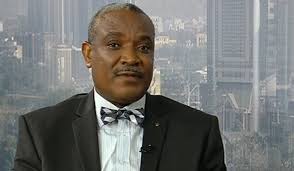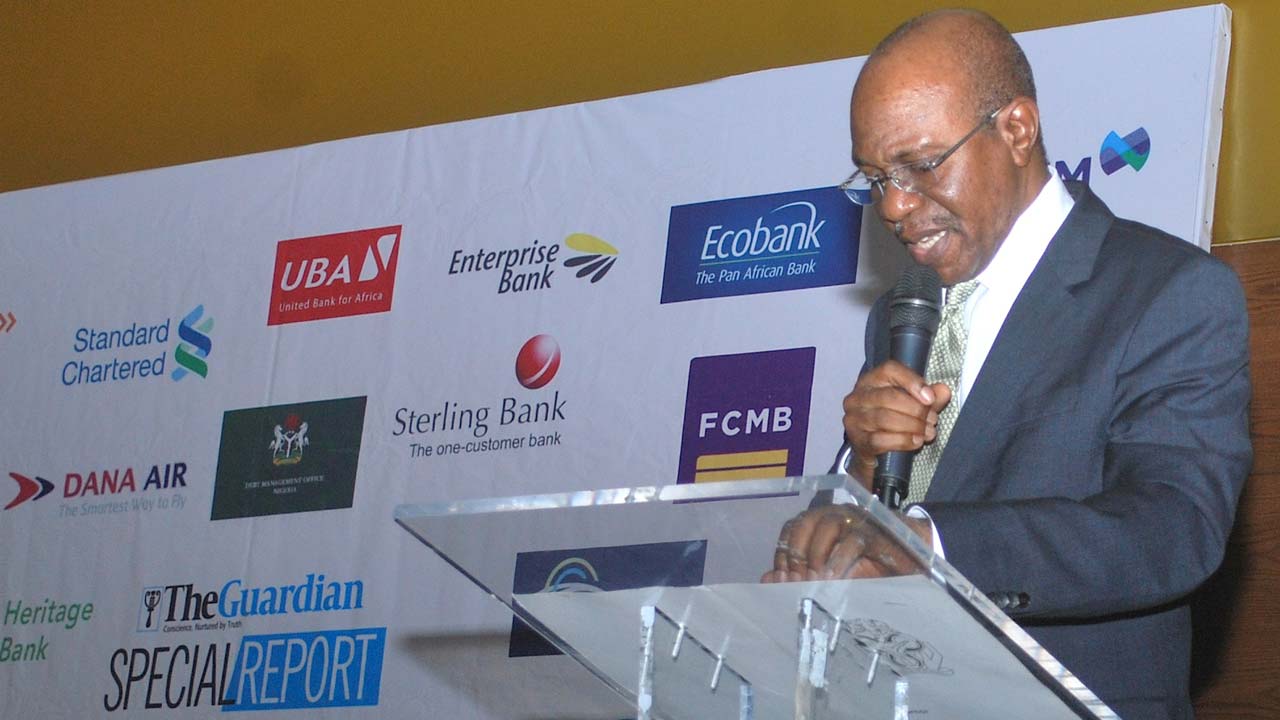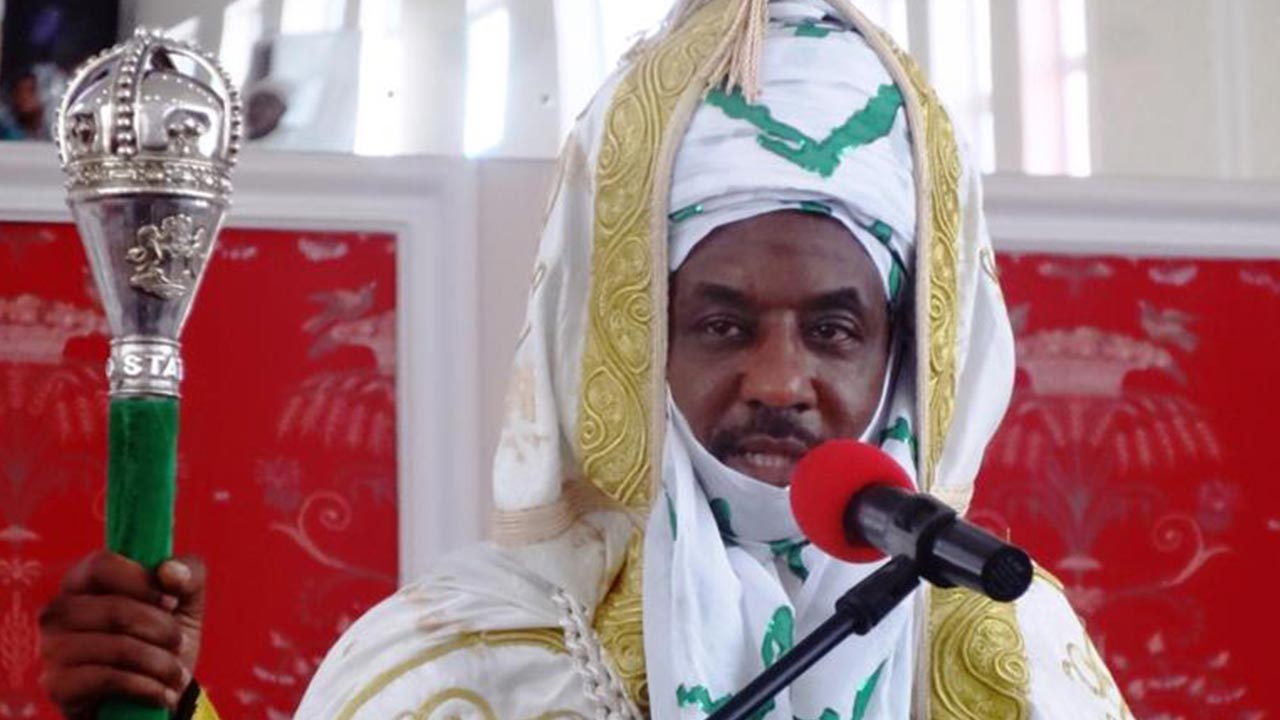…AS FG drops panel chairman from media interviews henceforth
Since weekend when the Federal Government through its Special Presidential Panel for the Recovery of Public Property announced plans to recover the $7bn bailout fund granted commercial banks between 2006 and 2008, disquiet has engulfed the banking industry and spines of politicians involved who may be mainly in opposition to ruling government ahead of 2019 elections.
Checks on the affected banks’ annual reports show that the bailouts never appeared in their yearly annual reports, a sign of fraud-driven complacency.
The panel Chairman, Mr. Okoi Obono-Obla , said in Abuja on Friday that the banks had yet to refund the money over a decade after, stressing that the N640bn (about $7bn) bailout fund was not a gift to the commercial banks and so must be recovered and returned to government’s coffers.
However, in a swift, the Federal Government has dropped Mr Okoi Obono-Obla as the Chairman, Special Investigation Panel on recovery of Public Property on grounds of flagrant granting of media interviews on critical issues on the eve of election.
The announcement was made on Sunday by Mr Salihu Isah, Special Adviser, Media and Publicity to the Minister of Justice, Mr Abubakar Malami.
He said that Obono-Obla was directed to stop carrying out operations as head of the panel.
Isah said that the directive which was issued in a letter addressed to the panel’s chairman was signed by Malami.
According to Isah, the decision to release Obono-Obla of the position was based on the grounds that his recent actions were contrary to the enabling act that established the panel.
It was not clear whether the removal will end the planned recovery process of the bailout funds for banks between 2006 to 2008.
Obono-Obla had revealed that “We are currently doing a lot of investigations to recover monies that have been taken away from the people of Nigeria.
“One of them is the almost seven billion dollars bailout fund that the Central Bank of Nigeria granted commercial banks in 2006, 2007 and 2008.
“After 13 years or so, these commercial banks have not returned that money to the coffers of the Federal Government of Nigeria.
“When we enquired from the Central Bank of Nigeria (CBN) the status of that money, the banks told us that the money was ‘dashed’ (given free) to the commercial banks,’’ he said.
The panel chairman said that the money belonged to the people of Nigeria and so could not be given away like that to commercial banks owned by private individuals.

Business Hilights recalls that barely one month after former CBN Governor and current Emir of Kano, Alhaji Sanusi Lamido Sanusi assumed duty in June 2009, he raised alarm that by the fact that the total amount outstanding for banks at the Expanded Discount Window (EDW) was N256.571 billion, most of which was owed by five banks including Bank PHB Plc (Keystone Bank), Spring Bank Plc, Equitorial Trust Bank Limited (Sterling Bank Plc) and Wema Bank Plc.
It is important to recall that the entire reform effort by Governor Sanusi followed a significant reform effort begun by his predecessor, Prof Charles Soludo in 2004 on the consolidation of the banking industry in Nigeria.
Sanusi stated further that a review of the activity in the EDW showed that four banks including Intercontinental Bank (now Access Bank), Union Bank, Oceanic Bank (now Ecobank) and AfriBank (now Mainstreet Bank) had been almost permanently locked in as borrowers and were clearly unable to repay their obligations. A fifth bank, he added, had been a very frequent borrower when its profile ordinarily should have placed it among the net placers of funds in the market.
According to him, “Whereas the five banks were by no means the only ones to have benefited from the EDW, the persistence and frequency of their demand pointed to a deeper problem and the CBN identified them as probable source of financial instability, most likely suffering from deeper problems due to non-performing loans,” said Sanusi.
To get to the root of the matter, the Governor ordered a joint examination of 10 banks by the CBN and the Nigerian Deposit Insurance Corporation (NDIC).
The 10 banks were Diamond Bank, First Bank, United Bank for Africa, Guaranty Trust bank and Sterling Bank, Afribank Plc, Intercontinental Bank Plc, Union Bank of Nigeria Plc, Oceanic International Bank Plc and Finbank Plc.
By the result of the examination, which was made public on August 14, the CBN found five institutions in a ‘grave situation’ namely Afribank Plc, Intercontinental Bank Plc, Union Bank of Nigeria Plc, Oceanic International Bank Plc and Finbank Plc.
Sanusi said the Management was found to have also acted in a manner detrimental to the interest of their depositors and creditors. In exercise of the powers of his office as contained in Sections 33 and 35 of the Banks and Other Financial Institutions Act 1991, as amended, and after securing the consent of the Board of Directors of the CBN, Sanusi removed and replaced the executive management of the five banks. He injected N420 billion in the form of tier 2 capital to the five banks to enable them continue as going concern.
After the action on the five banks and the clean bill of health to the five other banks, the CBN commenced the audit of the remaining 14 banks namely: Bank PHB, Equitorial Trust Bank, Spring Bank, Wema Bank, Access Bank Plc, Citibank Nigeria Limited, Ecobank Nigeria Plc, Fidelity Bank Plc, First City Monument Bank Plc, Skye Bank Plc, Stanbic IBTC Bank Plc, Standard Chartered Bank Limited, Zenith Bank Plc and Unity Bank.

The Special Examination primarily focused on assessing the health of the banks with particular focus on liquidity, capital adequacy and corporate governance.
After a review of the findings of the Special Examination report in respect of the 14 banks, the CBN announced on October 2, 2009, that nine banks had adequate capital and liquidity to support the level of their current operations and future growth. The nine banks were: Access Bank Plc, Citibank Nigeria Limited, Ecobank Nigeria Plc, Fidelity Bank Plc, First City Monument Bank Plc, Skye Bank Plc, Stanbic IBTC Bank Plc, Standard Chartered Bank Limited and Zenith Bank Plc.The 10th bank – which was Unity Bank was adjudged to have insufficient capital but not in grave situation because it had a healthy liquidity position. The remaining four banks were found to be in a ‘grave situation’ namely:Bank PHB Plc; Equitorial Trust Bank Plc; Spring Bank Plc; and Wema Bank Plc.
The CBN sacked and replaced the executive management of three banks: Bank PHB Plc, Equatorial Trust Bank Plc and Spring Bank Plc. The banking watchdog injected N200 billion as liquidity support and long-term loans in the banks adjudged in a grave situation to enable them continue normal business, while pursuing recapitalisation options. Also, it ordered Unity Bank and Wema Bank to recapitalise not later than June 30, 2010.
Clarifying the actions of the CBN, Sanusi explained that the intervention was informed by the need to save the banking system from total collapse. He said it was based on concern for the national economy as well as restoring confidence in the financial system. He stressed that weak risk management, serious liquidity shortages, sub-standard corporate governance, insolvency, among other serious problems were present in many of the banks.
According to him, “Had the capital and liquidity shortages persisted, the weak corporate governance that supported the abuse of the financial system continued unchecked, and the concentration of lending to weak business sectors continued unabated, the Nigerian financial sector would have been smothered and a systemic crisis of immense proportion would have ensued,” said Sanusi.
However, industry analysts then argued that before the naira rain which is now causing sleepless nights for the banks since Friday Obono-Obla Panel opened up on repayments, five of the banks that got N420bn needed just N100 billion financial assistance to stabilise their operations and not the whooping N420 billion injected by the apex bank.
Besides, some ranking bankers complained that the CBN blew the situation out of proportion to achieve a desired end.
During a meeting of banks’ treasurers in 2011 in Lagos, they averred that the five troubled banks did not, after all, need the size and volume of bail out injected by the apex bank, allegedly to stabilise their operations.

All the banks, according to them, have stabilised in both the interbank market and clearing house.
Out of the N400 billion injected by the CBN into the five banks, the banks have used barely N100 billion on the whole. Of the five banks, Oceanic is said to have utilised the highest after using N50 billion out of the N100 billion the CBN injected into it. Intercontinental Bank, it was gathered, used N32 billion out of the N100 billion injected into it.
Similarly Union Bank is said to have utilised just N16 billion out of the N120 billion injected. Afribank and Finbank had N50 billion each and have not utilized up to 5 per cent of the fund injected. Bank treasurers point to the fact that even the portions so utilised were precipitated by the undue pressure on the banks following the CBN action of August 14, 2009.
The funds so far used out of the amount injected by the CBN represents about 25 per cent of the total bail-out fund and the amount has so far actually stabilised the banks, a banker said.
Bankers also argued in 2009 that what the bailed out banks are currently doing is using the fund to play in the interbank market where banks lend to one another.
According to them, the N100 billion the banks have used is also the same amount the CBN used to print the N420 billion bail-out fund.
Banking insiders are of the view that the true situation of the banks was blown out of proportion by the CBN to prepare the ground for the take-over of the affected banks.
Also, Kola Ibrahim, a lecturer at OAU wrote in 2011 in a paper that “Looking at the Sanusi led reform itself, it is glaring that it cannot go beyond boundary of the existing shenanigan economy. Pumping N620 billion into 14 banks as a way of recovering the economy is itself a fraud. According to official data, just 8 percent of the 20 percent Nigerians who have access to financial service control around 90 percent of bank deposits while just 1 percent of Nigerians control 80 percent of the nation’s wealth shows. Thus, the N620 billion bailout benefits the top echelon of Nigerian economic strata. Worse still, it is those billionaires, who severally and collectively plunder these banks, are also the major shareholders and depositors in these banks. Sanusi’s feeble excuse that the bailout fund belongs to the CBN is funny. Assuming without conceding that the N620 billion belongs to the CBN, the question is who funds the CBN? Is the banks’ reserve with the CBN up to half of the bailout fund to these banks? What this imply is that public resources is being used not to bailout teeming millions of Nigeria’s hoi polloi, but the already few rich who caused this crisis in the first place.

On October 10, 2016, a well respected economist, Mr. Henry Boyo asked a salient question in THE PUNCH querying “Where is $7bn CBN placed with 14 banks?”
He averred quote: “The preceding are excerpts from an article titled, “14 Nigerian banks to enjoy $7bn reserve”. The piece was first published in the Vanguard newspaper on October 9, 2006. “Not surprisingly, barely two years after Prof. Chukwuma Soludo’s “celebrated” banking consolidation and confident assurances to the National Assembly that Nigerian banks were insulated from the global economic meltdown, most of our banks actually tittered on the verge of collapse.
“There is yet no confirmation that the 14 banks have repaid the $7bn given away in October 2006 by the CBN before the banking crisis erupted in 2008. Consequently, it is possible that Nigeria’s $7bn reserves may have ultimately “gone with the wind” during the ensuing financial crisis!
But from the latest position of the federal government, the money that may have gone with the wind may be on its way back if the political will is intact.









